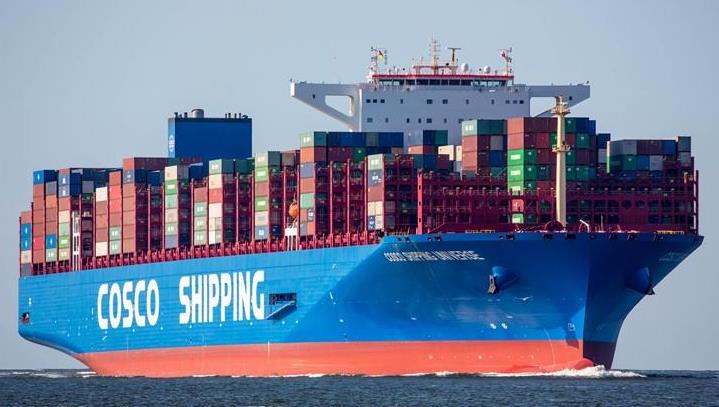By Leonidas Vatikiotis[1].
The European Union is preparing to close the door to China in the New Year, copying US President Donald Trump’s economic policy.
In particular, as Bloomberg has revealed, intensive negotiations have long been going on between the European Parliament and European governments to legislate to scratch all foreign direct investment in Europe coming from China.
In particular, a pan-European mechanism is being set up to collect information and assess investment projects targeting sensitive sectors, technologies and infrastructures. The following are described in the drafts discussed: Energy, Transport, Communications, Data, Space, Financial Services, Semiconductors, Artificial Intelligence, Robots, etc. What’s left? A farming system, where foreign investors are reluctant to invest even 1 euro, metallurgy where there is little scope for profit, etc., etc.
On the basis of what has already been leaked by French MEP Frank Proust, the commission will not include a ban on investment. At most a “red flag” will be raised.
To see what may happen in practice, it is enough to look at some recent precedents. For example, Germany has already implemented bans. With the direct intervention of Berlin, the acquisition of the German robot maker, Kuka, by the Chinese Midea Group has been prevented, as well as the acquisition of the Leifeld machine tool manufacturing company. A more comprehensive taste of the changes that the implementation of this legislation will signal can be found in the US.
In the first half of 2018, foreign direct investment in North America was only $2.5 billion, while in Europe it was $20 billion. The countries that won the lion’s share were: Sweden, (6 billion), the UK (1.6 billion), Germany (1.5 billion) and France (1.4 billion). The enormous difference between the United States and Europe is attributable to the decisions of the US Committee on Foreign Investment, an inter-agency panel that reviews every investment project: from the largest to the smallest.
The repressive role of this mechanism can be seen when we compare Chinese investments in the US one year ago: $ 24 billion. A reduction of 92%! Putting developments in chronological order, it is easy to see that the investment blockade was preceded by a trade war, and that the halt of investment flows served as a precursor to commercial opposition. It remains to be seen whether opposition to investment flows in 2019, when the new European Commission will take office, will be the first act of a Europe-China trade war that unfolds in 2020. And hoping that history doesn’t repeat itself, it remains to be seen what form the escalation will take…
The Asian giant has been repeatedly (and correctly) criticized for industrial espionage, theft of intellectual property, unfair practices and so on. At the same time, however, China has also been criticized because it does not open certain of its internal markets, such as banking. While we see the need for concrete liberalization measures from China, the West is closing its markets, citing national security reasons. In practice, because it cannot compete with China.
Thus, the US and the EU are preventing free movement of capital – the cornerstone of neoliberalism – when they find that in exceptional cases, they – those who define the rules of capitalist accumulation – are not on the winning side. It is ironic that the US and EU, who have called others “outdated dinosaurs” and “enemies of progress” are the ones now using the same tactics.
French MEP Frank Proust, who is the chief negotiator on behalf of the European Parliament, has justified the need for pan-European coordination on the basis of threats that may be created in third party EU countries as a result of Chinese investment in a country where there is no threat. Here, however, bias may be created at the expense of smaller countries. Let us look at the subject of marine ports, for example.
The writer’s view remains unchanged since 2008, that Cosco’s investment in Piraeus port is of a colonial nature and detrimental to the economy, the inhabitants of the wider region and the working relations of the staff of Greece’s largest port. Let us assume, however, that the agreement was indeed economically profitable, broadly beneficial and having a social consensus. Furthermore, let’s consider that the investment plans were so ambitious that the Dutch port of Rotterdam’s interests were threatened. What position would the Netherlands take in the Chinese Investment Review Committee, since it would have an interest in cancelling the acquisition in order to protect its dominant position?
[1] Leonidas Vatikiotis was born in Piraeus in 1968. He studied Statistics at the University of Piraeus. His doctoral dissertation, at the Sociology Department of Panteion University (2008) considered the causes of the 1970s economic crisis. Since 1991, Leonidas is working as a journalist specializing in foreign affairs and international economics. Since 2010 he has been teaching Political Economy at Varna Free University of Cyprus.










